
For much of the past decade, manufacturers have had a “piñata problem” whenever electronics recycling issues arose in state legislatures. Continue Reading

For much of the past decade, manufacturers have had a “piñata problem” whenever electronics recycling issues arose in state legislatures. Continue Reading
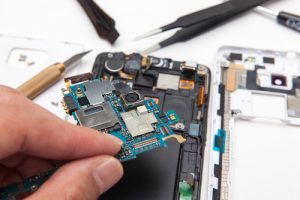
Credit: NothingIsEverything/Shutterstock
Legislation advancing in the state of Washington bans the sale of electronics with permanently affixed or otherwise difficult-to-remove batteries.
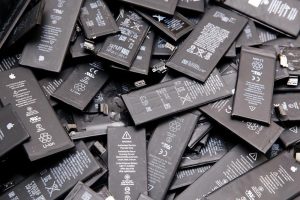
Credit: Parilov/Shutterstock
Attorneys have asked a federal judge to temporarily halt Apple’s iPhone battery recycling program, claiming the company could be destroying critical evidence in a lawsuit.
 The U.S. EPA recently recognized an easier-to-recycle flat-screen TV, an outreach and collection program, and a phone reuse project.
The U.S. EPA recently recognized an easier-to-recycle flat-screen TV, an outreach and collection program, and a phone reuse project.

Dell has recycled e-plastics from end-of-life devices back into new electronics for years. Now, the global technology company is doing the same thing for gold.
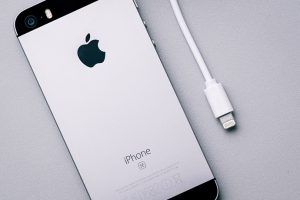 Apple has been slowing down the performance of iPhones with older batteries, which likely led to more of the smartphones prematurely entering the end-of-life stream.
Apple has been slowing down the performance of iPhones with older batteries, which likely led to more of the smartphones prematurely entering the end-of-life stream.
 A recent write-up from a U.K. electronics trade group leader makes a cogent argument for why electronics engineers have a key role to play in ensuring devices are repairable and recyclable.
A recent write-up from a U.K. electronics trade group leader makes a cogent argument for why electronics engineers have a key role to play in ensuring devices are repairable and recyclable.
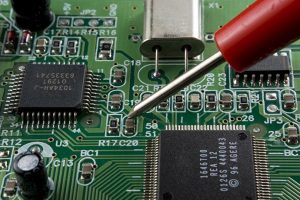 Nearly 300 IT product refurbishing experts convened in New Orleans this week to consider industry trends and to address barriers to growth. The event was the 14th annual Electronics Reuse Conference, now operated by the consulting firm E-Reuse Services.
Nearly 300 IT product refurbishing experts convened in New Orleans this week to consider industry trends and to address barriers to growth. The event was the 14th annual Electronics Reuse Conference, now operated by the consulting firm E-Reuse Services.
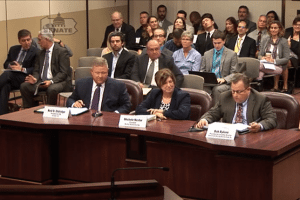
Lawmakers hear testimony from Ned Eldridge of eLoop (left), Michele Nestor of Nestor Resources and Bob Bylone of the Pennsylvania Recycling Markets Center.
Manufacturers say proposed changes to Pennsylvania’s e-scrap program would make it the worst in the country from an OEM perspective. Proponents, however, note the bill fixes dire problems that have led to rampant CRT dumping statewide.

